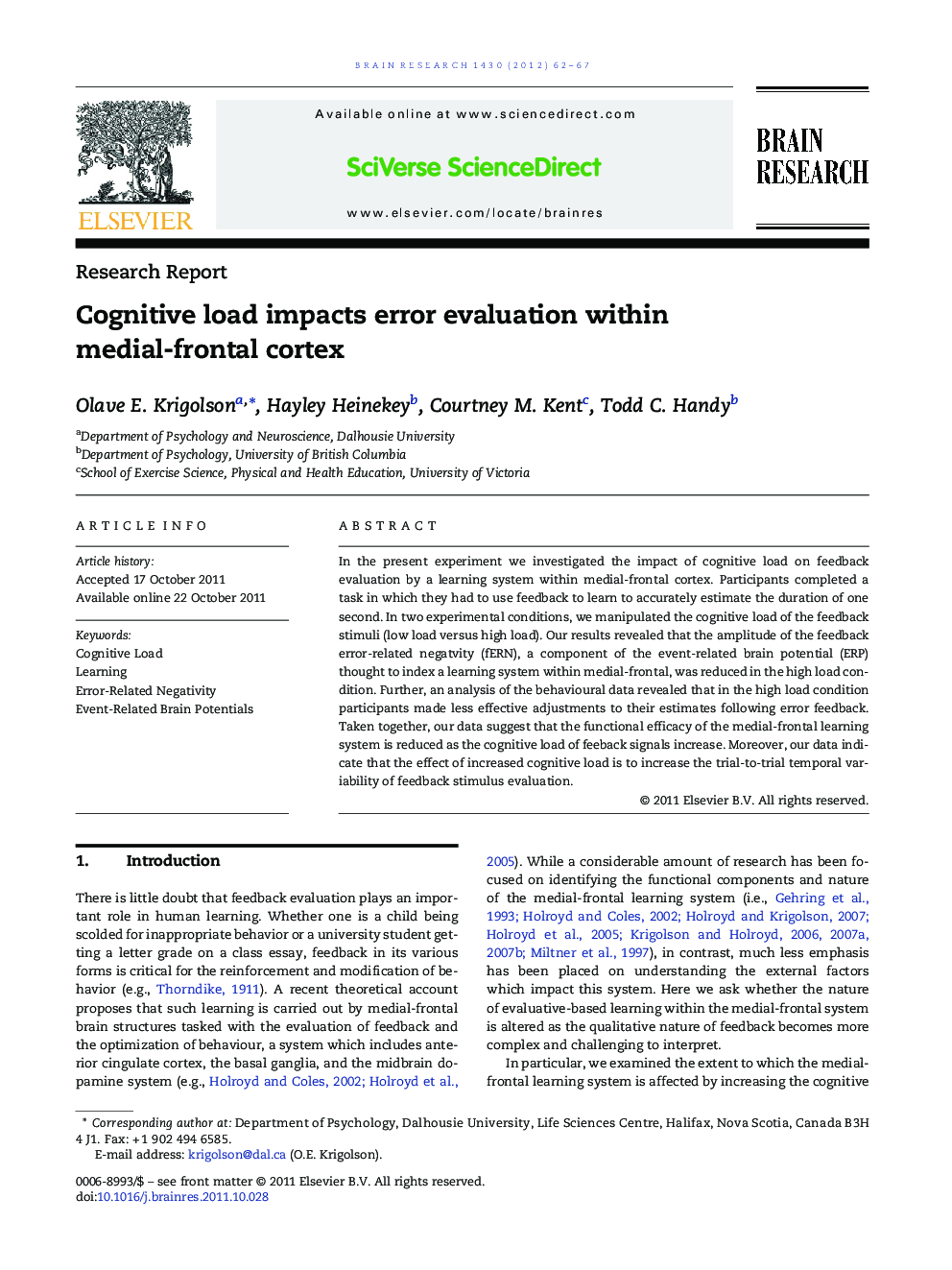| Article ID | Journal | Published Year | Pages | File Type |
|---|---|---|---|---|
| 6264589 | Brain Research | 2012 | 6 Pages |
In the present experiment we investigated the impact of cognitive load on feedback evaluation by a learning system within medial-frontal cortex. Participants completed a task in which they had to use feedback to learn to accurately estimate the duration of one second. In two experimental conditions, we manipulated the cognitive load of the feedback stimuli (low load versus high load). Our results revealed that the amplitude of the feedback error-related negatvity (fERN), a component of the event-related brain potential (ERP) thought to index a learning system within medial-frontal, was reduced in the high load condition. Further, an analysis of the behavioural data revealed that in the high load condition participants made less effective adjustments to their estimates following error feedback. Taken together, our data suggest that the functional efficacy of the medial-frontal learning system is reduced as the cognitive load of feeback signals increase. Moreover, our data indicate that the effect of increased cognitive load is to increase the trial-to-trial temporal variability of feedback stimulus evaluation.
⺠We examined the impact of increasing cognitive load on feedback evaluation using event-related brain potentials. ⺠Increased cognitive load reduced the amplitude of ERP components associated with learning. ⺠Increased cognitive load also resulted in a reduction in behavioral performance. ⺠Our results demonstrate that cognitive load impacts the learning system within medial-frontal cortex.
